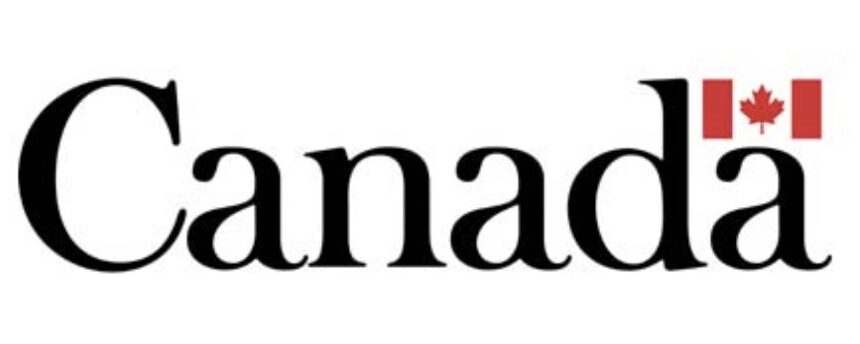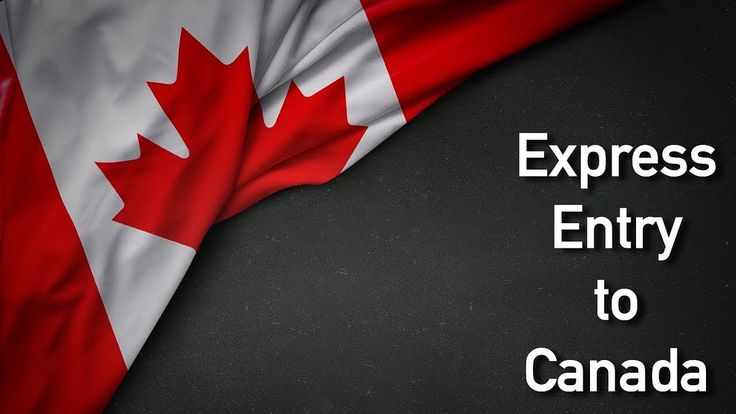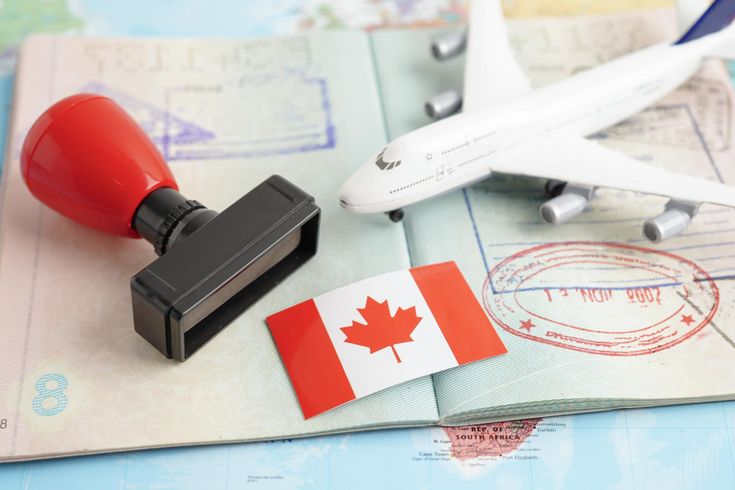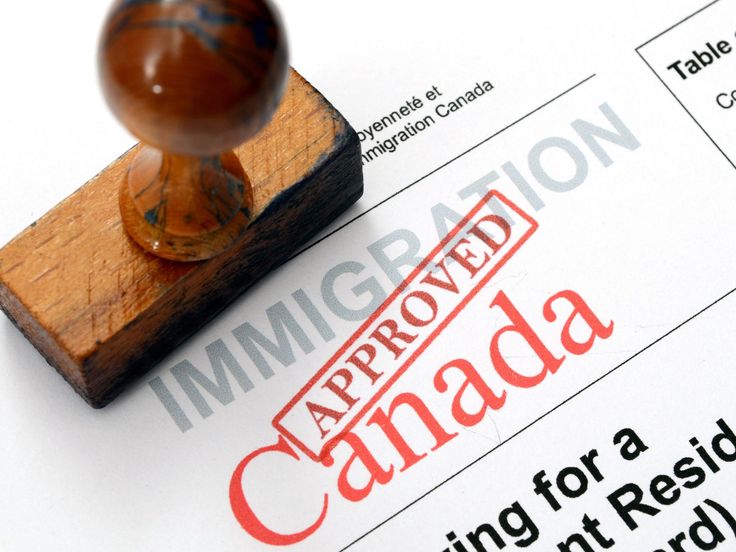How to Apply for the Canadian Express Entry Program in 2025
The Canadian Express Entry program is a cornerstone of Canada’s immigration strategy, designed to attract skilled workers from around the world. As we approach 2025, understanding the intricacies of this program is essential for anyone considering a move to Canada. This guide will provide an in-depth, SEO-optimized overview of the Express Entry application process, eligibility criteria, and tips to enhance your chances of success. We’ll also explore related topics such as job opportunities, housing, and alternative immigration pathways.
Find your Eligibility for FREE!!
Understanding the Express Entry Program
The Express Entry program is an online system used by the Canadian government to manage applications from skilled workers. It is designed to fast-track the immigration process for candidates who meet specific criteria. The program encompasses three main federal economic immigration programs:
- Federal Skilled Worker Program (FSWP)
- Federal Skilled Trades Program (FSTP)
- Canadian Experience Class (CEC)
Federal Skilled Worker Program (FSWP)
The Federal Skilled Worker Program (FSWP) is a flagship initiative of the Canadian government, designed to attract skilled professionals from around the world who wish to immigrate to Canada permanently. This program is tailored for individuals with significant work experience in skilled occupations, offering a pathway to permanent residency and a chance to contribute to Canada’s diverse and thriving economy.
Eligibility Criteria for FSWP
To qualify for the FSWP, candidates must meet several key criteria:
-
Skilled Work Experience:
- You must have at least one year of continuous full-time or equivalent part-time paid work experience within the last 10 years.
- The work experience must be in a skilled occupation categorized under the National Occupational Classification (NOC) skill type 0, A, or B.
- This experience should demonstrate your ability to perform the duties of the occupation you intend to pursue in Canada.
-
Language Proficiency:
- Meeting the minimum language proficiency requirements is crucial. You must take an approved language test in either English or French.
- Tests such as the International English Language Testing System (IELTS) or the Test d’Évaluation de Français (TEF) are commonly accepted.
- Aiming for higher scores can significantly boost your Comprehensive Ranking System (CRS) score, increasing your chances of receiving an Invitation to Apply (ITA).
-
Educational Credentials:
- A Canadian educational credential or a foreign educational credential with an Educational Credential Assessment (ECA) report is mandatory.
- The ECA report verifies that your foreign education is equivalent to a Canadian educational credential, ensuring that your qualifications are recognized in Canada.
- If you are considering furthering your education in Canada, explore scholarships that cover tuition and visa sponsorship, which can provide financial support and enhance your educational profile.
Enhancing Your FSWP Application
To strengthen your FSWP application and increase your chances of success, consider the following strategies:
-
Gain Additional Work Experience:
- Additional years of work experience in your field can enhance your CRS score.
- Consider roles that offer visa sponsorship, such as farm worker jobs in Canada or factory jobs with free work visas, which can provide valuable experience and a pathway to permanent residency.
-
Improve Language Skills:
- Higher language proficiency scores can significantly boost your CRS score.
- Engaging in language-focused roles, such as dog training jobs in Canada, can help you improve your language skills while gaining relevant work experience.
-
Pursue Higher Education:
- Additional qualifications can add valuable points to your CRS score.
- Explore educational opportunities in Canada, and consider scholarships that cover tuition and visa sponsorship to support your studies.
-
Secure a Job Offer:
- A valid job offer from a Canadian employer can add points to your CRS score and provide a pathway to a work permit.
- Explore job opportunities in Canada, such as high-paying warehouse worker jobs or care assistant jobs, which can offer stable employment and support your immigration goals.
Federal Skilled Trades Program (FSTP)
The Federal Skilled Trades Program (FSTP) is a vital component of Canada’s immigration strategy, designed to attract skilled tradespeople from around the world. This program offers a pathway to permanent residency for individuals with experience in specific skilled trades, addressing labor market needs and contributing to Canada’s economic growth.
Eligibility Criteria for FSTP
To qualify for the FSTP, candidates must meet several key criteria:
-
Skilled Trade Work Experience:
- You must have at least two years of full-time work experience (or an equal amount of part-time experience) in a skilled trade within the last five years.
- The work experience must be in a skilled trade listed in the National Occupational Classification (NOC) under skill level B.
- This experience should demonstrate your ability to perform the essential duties of the trade.
-
Job Requirements:
- You must meet the job requirements for your skilled trade as set out in the NOC, except for needing a certificate of qualification.
- This includes performing the essential duties and responsibilities of the trade.
-
Language Proficiency:
- Meeting the minimum language proficiency requirements is crucial. You must take an approved language test in either English or French.
- Tests such as the International English Language Testing System (IELTS) or the Test d’Évaluation de Français (TEF) are commonly accepted.
- Aiming for higher scores can significantly boost your Comprehensive Ranking System (CRS) score, increasing your chances of receiving an Invitation to Apply (ITA).
-
Job Offer or Certificate of Qualification:
- Having a valid job offer from a Canadian employer in your skilled trade can strengthen your application.
- Alternatively, a certificate of qualification in your skilled trade issued by a Canadian provincial, territorial, or federal authority can also enhance your eligibility.
Enhancing Your FSTP Application
To strengthen your FSTP application and increase your chances of success, consider the following strategies:
-
Gain Additional Work Experience:
- Additional years of work experience in your skilled trade can enhance your CRS score.
- Consider roles that offer visa sponsorship, such as factory jobs with free work visas or farm worker jobs in Canada, which can provide valuable experience and a pathway to permanent residency.
-
Improve Language Skills:
- Higher language proficiency scores can significantly boost your CRS score.
- Engaging in language-focused roles, such as caregiver jobs with visa sponsorship, can help you improve your language skills while gaining relevant work experience.
-
Secure a Job Offer:
- A valid job offer from a Canadian employer can add points to your CRS score and provide a pathway to a work permit.
- Explore job opportunities in Canada, such as hotel jobs with visa sponsorship or truck driver jobs with free visa sponsorship, which can offer stable employment and support your immigration goals.
-
Obtain a Certificate of Qualification:
- A certificate of qualification in your skilled trade can enhance your eligibility for the FSTP.
- Research the requirements for obtaining a certificate of qualification in your trade and province of interest.
Canadian Experience Class (CEC)
The Canadian Experience Class (CEC) is a popular immigration program designed for individuals who have gained skilled work experience in Canada. This program provides a pathway to permanent residency for temporary foreign workers and international students who have graduated and obtained work experience in Canada. The CEC is part of the Express Entry system, which allows for faster processing times and a more streamlined immigration process.
Eligibility Criteria for CEC
To qualify for the CEC, candidates must meet several key criteria:
-
Canadian Work Experience:
- You must have at least 12 months of full-time skilled work experience in Canada within the last three years.
- The work experience must be in a skilled occupation categorized under the National Occupational Classification (NOC) skill type 0, A, or B.
- This experience should be obtained legally, with the proper authorization to work in Canada.
-
Language Proficiency:
- Meeting the minimum language proficiency requirements is crucial. You must take an approved language test in either English or French.
- Tests such as the International English Language Testing System (IELTS) or the Test d’Évaluation de Français (TEF) are commonly accepted.
- Aiming for higher scores can significantly boost your Comprehensive Ranking System (CRS) score, increasing your chances of receiving an Invitation to Apply (ITA).
-
Educational Credentials:
- There is no specific educational requirement for the CEC, but having a Canadian educational credential or a foreign educational credential with an Educational Credential Assessment (ECA) report can enhance your application.
- If you are considering furthering your education in Canada, explore scholarships that cover tuition and visa sponsorship, which can provide financial support and enhance your educational profile.
Enhancing Your CEC Application
To strengthen your CEC application and increase your chances of success, consider the following strategies:
-
Gain Additional Work Experience:
- Additional years of work experience in your field can enhance your CRS score.
- Consider roles that offer visa sponsorship, such as caregiver jobs with visa sponsorship or hotel jobs with visa sponsorship, which can provide valuable experience and a pathway to permanent residency.
-
Improve Language Skills:
- Higher language proficiency scores can significantly boost your CRS score.
- Engaging in language-focused roles, such as dog walker jobs with visa sponsorship, can help you improve your language skills while gaining relevant work experience.
-
Secure a Job Offer:
- A valid job offer from a Canadian employer can add points to your CRS score and provide a pathway to a work permit.
- Explore job opportunities in Canada, such as high-paying warehouse worker jobs, which can offer stable employment and support your immigration goals.
-
Pursue Higher Education:
- Additional qualifications can add valuable points to your CRS score.
- Explore educational opportunities in Canada, and consider scholarships that cover tuition and visa sponsorship to support your studies.
Creating an Express Entry Profile
The first step in applying for the Express Entry program is to create an online profile. Your profile will be ranked based on a points system known as the Comprehensive Ranking System (CRS). The CRS score is determined by factors such as age, education, work experience, language skills, and adaptability.
Comprehensive Ranking System (CRS)
The CRS is a points-based system used to assess and score your profile. The maximum score is 1,200 points, with factors such as:
- Core/human capital factors: Age, education, language proficiency, and Canadian work experience.
- Spouse or common-law partner factors: Language proficiency, education, and Canadian work experience of your spouse or common-law partner.
- Skill transferability factors: Combination of education, language proficiency, and work experience.
- Additional points: Provincial nomination, job offer, Canadian educational credential, or French language skills.
Improving Your CRS Score
A higher CRS score increases your chances of receiving an Invitation to Apply (ITA) for permanent residence. Here are some strategies to improve your score:
Language Proficiency
Improving your English and/or French language skills can significantly boost your CRS score. Consider taking language tests such as IELTS or TEF and aim for high scores. If you’re looking to enhance your language skills, exploring job opportunities like pet care assistant jobs in the UK can provide valuable experience.
Education
Pursuing higher education or additional qualifications can add valuable points to your CRS score. An Educational Credential Assessment (ECA) is required to verify your foreign education. Consider exploring scholarships in Canada that cover tuition and visa sponsorship to further your education.
Work Experience
Gaining more work experience in your field can enhance your CRS score. Additional years of experience, especially in skilled occupations, can make a significant difference. If you’re looking for job opportunities in Canada, consider high-paying warehouse worker jobs or care assistant jobs.
Job Offer
Securing a job offer from a Canadian employer can add points to your CRS score. A valid job offer can also provide a pathway to a work permit. Explore dog training jobs in Canada or pet care jobs for potential opportunities.
Provincial Nomination
Applying for a provincial nomination through the Provincial Nominee Program (PNP) can add 600 points to your CRS score. Each province has its own streams and requirements, so research the provinces that best suit your skills and qualifications.
Submitting Your Application
Once you receive an ITA, you have 60 days to submit a complete application for permanent residence. Ensure that you provide all the required documents, including:
- Valid passport or travel document
- Language test results
- Educational credential assessment (ECA) report
- Proof of work experience
- Police clearance certificates
- Medical exam results
- Proof of funds
Document Checklist
Preparing your documents in advance can save time and reduce stress. Make sure to gather all the necessary documents before submitting your application. Incomplete applications may be returned or refused, delaying your immigration process.
Life in Canada: What to Expect
Moving to Canada is an exciting opportunity, but it also comes with challenges. Here are some aspects to consider:
Housing
Finding affordable housing can be a challenge, especially in major cities. Explore affordable temporary housing options to ease your transition. Consider living in one of the cheapest cities in Canada to reduce your living expenses.
Employment
Securing a job is crucial for financial stability. Explore top countries for visa sponsorship jobs to expand your job search.
Community Support
Connect with local communities and organizations that offer support to new immigrants. Government assistance programs can also provide valuable resources. Explore government assistance programs for new immigrants to help you settle in Canada.
Alternative Pathways to Canada
If you’re exploring other options to move to Canada, consider the following:
Study Permit
Pursuing education in Canada can lead to permanent residence. Look for scholarships that cover tuition and visa sponsorship. A study permit can also provide opportunities for work experience through co-op programs or part-time jobs.
Work Permit
Obtain a work permit through job offers with visa sponsorship. Explore fruit picker jobs or factory jobs with free visa sponsorship. Consider farm worker jobs or hotel jobs with visa sponsorship for additional opportunities.
Marriage Visa
If you have a spouse or partner in Canada, explore ways to get a Canada marriage visa. A marriage visa can provide a pathway to permanent residence and allow you to live and work in Canada.
Visa Sponsorship Jobs
Consider jobs that offer visa sponsorship, such as dog walker jobs or caregiver jobs. These jobs can provide a pathway to a work permit and eventual permanent residence.
Tips for a Successful Application
Be Organized
Keep all your documents organized and readily available. Create a checklist of required documents and ensure you have them before submitting your application.
Stay Informed
Stay updated on changes to the Express Entry program and immigration policies. Follow reliable sources and consult with immigration professionals if needed.
Improve Your Profile
Continuously work on improving your CRS score. Gain additional work experience, improve your language skills, and pursue higher education to enhance your profile.
Network
Connect with professionals in your field and join online communities for immigrants. Networking can provide valuable insights and opportunities.
Seek Professional Help
Consider hiring an immigration consultant or lawyer to guide you through the application process. They can provide personalized advice and increase your chances of success.
Conclusion
Applying for the Canadian Express Entry program in 2025 requires careful planning and preparation. By understanding the eligibility criteria, creating a strong profile, and submitting a complete application, you can increase your chances of success. Additionally, exploring alternative pathways and preparing for life in Canada can make your transition smoother.
For more information on job opportunities and immigration tips, visit BarkToPaws Jobs. This comprehensive guide aims to provide valuable insights and resources to help you navigate the Express Entry program and achieve your immigration goals. Good luck with your application!







